- Home
- Treatment
Treatment Designed for You.
Get in touch with Absolute Awakenings today and begin your journey to long-term healing & recovery. - What We Treat
An Experience in Healing
Get in touch with Absolute Awakenings today and begin your journey to long-term healing & recovery. - About
The Rehab You've Been Looking For
Get in touch with Absolute Awakenings today and begin your journey to long-term healing & recovery. - Tour
- Resources
Don't Wait Another Day.
Get in touch with Absolute Awakenings today and begin your journey to long-term healing & recovery. - Admissions
The Rehab You've Been Looking For
Get in touch with Absolute Awakenings today and begin your journey to long-term healing & recovery. - Contact
(866) 627-0196
3000 NJ-10, Morris Plains, NJ 07950
admissions@absoluteawakenings.com
Schedule a Tour Now
Get in touch with Absolute Awakenings today and begin your journey to long-term healing & recovery.
Begin Your Journey Now
Begin Your Journey Now
- Home
- Treatment
Treatment Designed for You.
Get in touch with Absolute Awakenings today and begin your journey to long-term healing & recovery. - What We Treat
An Experience in Healing
Get in touch with Absolute Awakenings today and begin your journey to long-term healing & recovery. - About
The Rehab You've Been Looking For
Get in touch with Absolute Awakenings today and begin your journey to long-term healing & recovery. - Tour
- Resources
Don't Wait Another Day.
Get in touch with Absolute Awakenings today and begin your journey to long-term healing & recovery. - Admissions
The Rehab You've Been Looking For
Get in touch with Absolute Awakenings today and begin your journey to long-term healing & recovery. - Contact
(866) 627-0196
3000 NJ-10, Morris Plains, NJ 07950
admissions@absoluteawakenings.com
Schedule a Tour Now
Get in touch with Absolute Awakenings today and begin your journey to long-term healing & recovery.
Yoga Therapy in New Jersey
Yoga Therapy
- Written By: Amanda Stevens, B.S.
- Reviewed By: Dr. Po-Chang Hsu, M.D., M.S.
- Updated:
- Published:
- Reading Time: 9 minutes
Yoga is an ancient art form that has been proven to show lasting results when treating behavioral health issues.
learn to connect with the world around you
Movement for Holistic Healing
Substance abuse can cause a significant disconnect between body and mind, affecting not just your health, but your emotional and spiritual well-being.
At Absolute Awakenings, we understand the importance of restoring the mind-body connection as part of a whole-person approach to addiction recovery. Yoga therapy for addiction can help you stay on track on your recovery journey.
You deserve to heal, and you deserve to do so holistically.
trauma-informed, therapeutic solutions
Our Therapies
-
Cognitive Behavioral Therapy
-
Dialectical Behavioral Therapy
-
Motivational Interviewing
-
Acceptance & Commitment Therapy
-
Interpersonal Therapy
-
Family Therapy
-
Art Therapy
-
Yoga Therapy
-
Muay Thai
-
Music Therapy
-
Hypnotherapy
 Cognitive Behavioral Therapy is a form of talk therapy that helps you to identify negative thoughts and feelings. The goal is to help you understand the sequence of events that lead to undesirable behaviors and stop the cycle before it begins.
Cognitive Behavioral Therapy is a form of talk therapy that helps you to identify negative thoughts and feelings. The goal is to help you understand the sequence of events that lead to undesirable behaviors and stop the cycle before it begins.
 DBT was initially created to treat personality disorders but has since maintained prominence as an industry-leading mental health and substance use treatment. While similar to CBT, DBT is a psychotherapy approach that helps you identify and accept two potentially contradictory things in your mind. For example, feeling intense emotions about something and comparing this to the truth about that thing.
DBT was initially created to treat personality disorders but has since maintained prominence as an industry-leading mental health and substance use treatment. While similar to CBT, DBT is a psychotherapy approach that helps you identify and accept two potentially contradictory things in your mind. For example, feeling intense emotions about something and comparing this to the truth about that thing.
 Considered more of a counseling approach, Motivational Interviewing is a person-centered and targeted intervention that helps clients identify and address ambivalent feelings about their actions. The intention is to rebuild or develop their own personal motivation to make positive behavior changes.
Considered more of a counseling approach, Motivational Interviewing is a person-centered and targeted intervention that helps clients identify and address ambivalent feelings about their actions. The intention is to rebuild or develop their own personal motivation to make positive behavior changes.
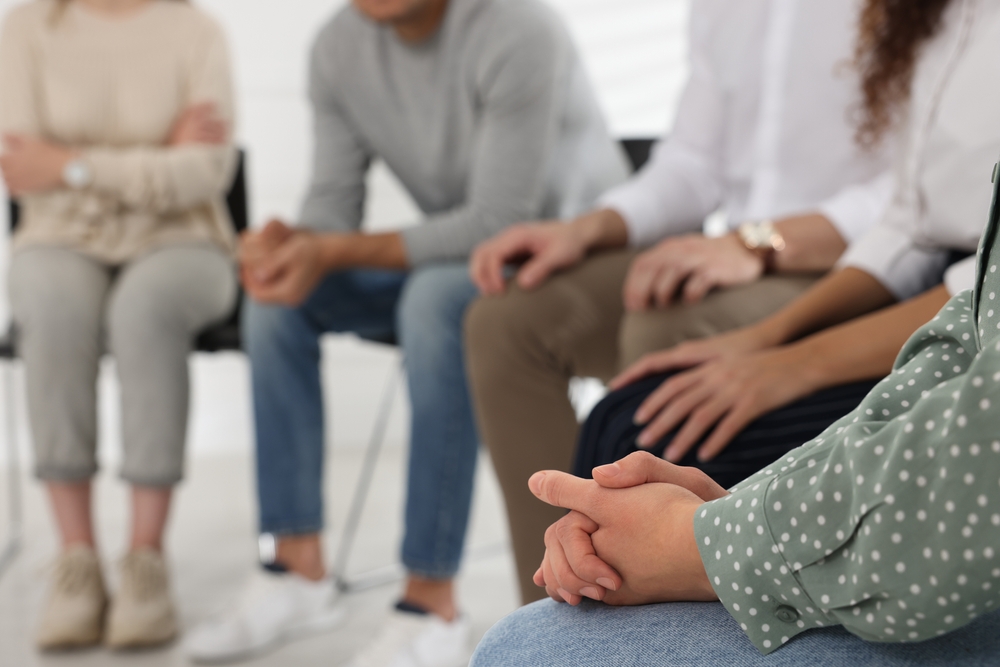 The goal of ACT is for the client to increase their psychological flexibility by implementing several effective behavioral changes and commitment-based strategies. By accepting hardships or challenges and committing to a healthy response, the client creates positive habits.
The goal of ACT is for the client to increase their psychological flexibility by implementing several effective behavioral changes and commitment-based strategies. By accepting hardships or challenges and committing to a healthy response, the client creates positive habits.
 Interpersonal Therapy is a form of psychotherapy. The goal is to help clients address their worries and obstacles and improve interpersonal communication and enhance their relationships. The client learns new ways to relate to their circle, their circumstances, and the world around them to develop and maintain healthy relationships.
Interpersonal Therapy is a form of psychotherapy. The goal is to help clients address their worries and obstacles and improve interpersonal communication and enhance their relationships. The client learns new ways to relate to their circle, their circumstances, and the world around them to develop and maintain healthy relationships.

The road to recovery for someone struggling with alcohol or substance use often brings the family along. Family Therapy is a safe space for every member of the family to be heard, feel seen, and work through their challenges as a group. Here, there is room for the whole unit to be supported and pursue healing, not only the primary client.
 Art Therapy is a form of Experiential Therapy that facilitates a hands-on approach to recovery. The client will engage in multiple activities, such as creating or viewing the arts. From drawing and pottery to painting and art museums, the therapist will help the patient engage with all aspects of the craft.
Art Therapy is a form of Experiential Therapy that facilitates a hands-on approach to recovery. The client will engage in multiple activities, such as creating or viewing the arts. From drawing and pottery to painting and art museums, the therapist will help the patient engage with all aspects of the craft.
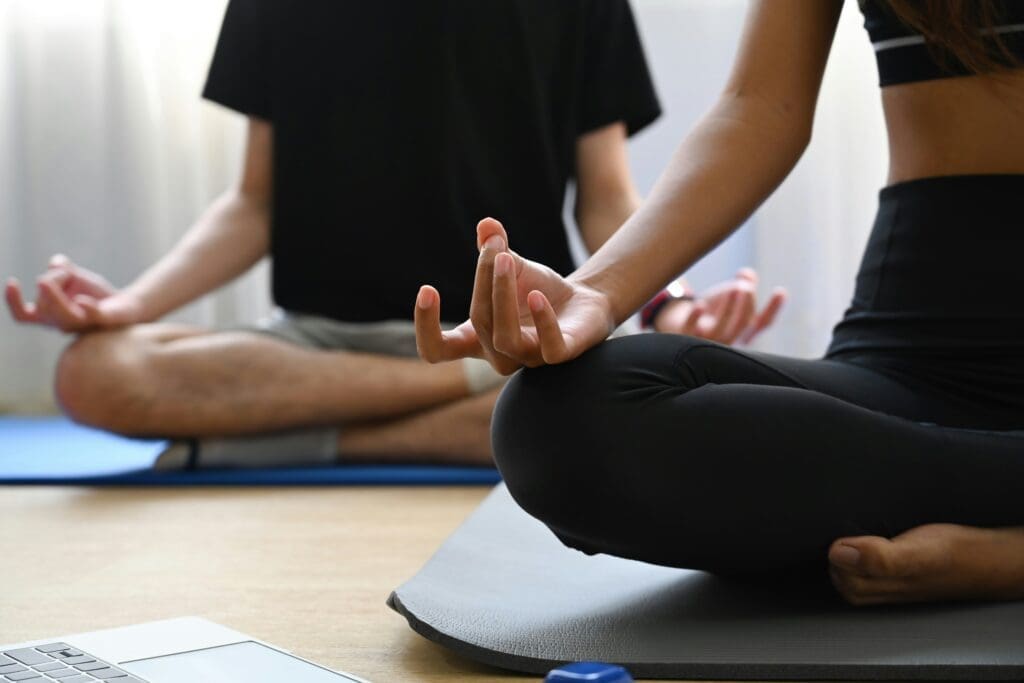 This type of yoga is not simply a workout, although that is often a natural byproduct. Yoga Therapy is an interactive therapeutic approach that engages the whole patient, body, mind, and soul. By connecting these three facets of a person, clients can begin to ease physical, mental, and emotional complaints.
This type of yoga is not simply a workout, although that is often a natural byproduct. Yoga Therapy is an interactive therapeutic approach that engages the whole patient, body, mind, and soul. By connecting these three facets of a person, clients can begin to ease physical, mental, and emotional complaints.
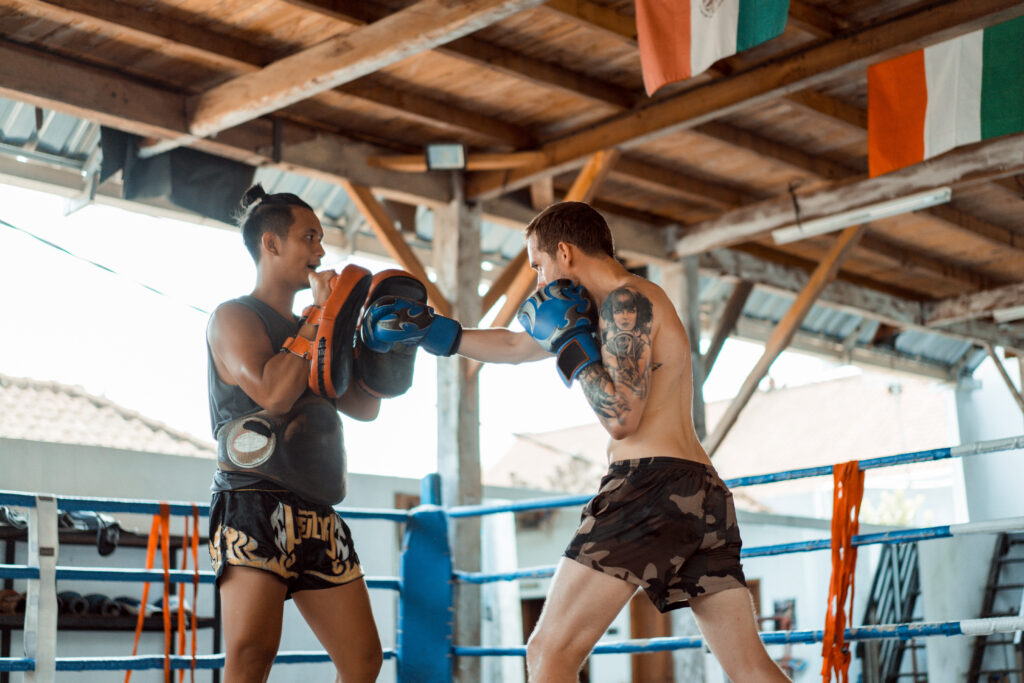
Muay Thai isn’t just for self-defense and movement. It’s also an evidence-back therapeutic outlet that promotes stress relief, focus, and personal discipline. All of these attributes make it a highly-effective therapy technique for drug and alcohol dependence.

Music Therapy is another form of Experiential Therapy that actively engages the client in their treatment with a hands-on approach. Activities range from listening, writing, and playing music under the direction of a skilled provider. Don’t worry, you don’t need to know how to play an instrument in order to participate.
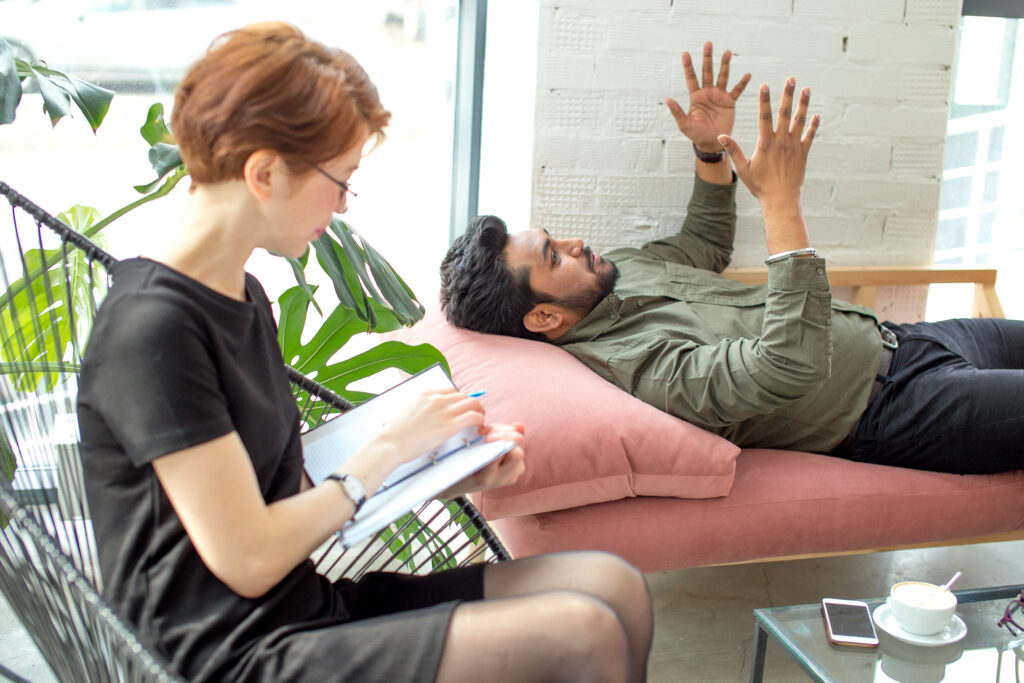
Hypnotherapy is nothing like a hypnotist on a stage. It is, however, an evidence-based and highly-effective therapeutic intervention. In Hypnotherapy, the therapist helps to create a state of increased attention and concentration. Inducing a state of hypnosis gives a sense of heightened awareness and allows the client to process experiences from a detached perspective.
how yoga is used as a therapeutic tool
What is Yoga Therapy?
Yoga therapy is an adjunct, meaning complementary, therapy that is used alongside other healing modalities such as cognitive behavioral therapy (CBT), dialectical behavioral therapy (DBT), group therapy, family therapy, and others. Yoga therapy is an evidence-based modality that helps not only reduce stress hormones like cortisol, but can help clients develop the mindfulness necessary to manage negative emotions or symptoms associated with substance use disorder.
Absolute Awakenings offers Yoga Therapy in New Jersey so that you can get the most out of your addiction treatment program and recover for life.
How Yoga Therapy Works
Yoga therapy is part of a whole-person approach to addiction recovery.
While yoga as a whole is movement and mindfulness based, yoga therapy for addiction differs in purpose. While the focus of a traditional yoga class is more about technique, yoga therapy sessions are focused more on applying these techniques to regulate the nervous system, develop mindfulness surrounding withdrawal symptoms, cravings and relapse prevention, and allow clients to feel more in tune with their bodies.
A yoga therapist may design sessions to include specific postures, meditation, breathing exercises, guided imagery, and relaxation techniques, all of which can be applied to the client’s individual recovery plan.
This form of yoga is becoming increasingly popular among drug addiction treatment centers that put just as much focus on emotional and spiritual wellness as they do physical health.
will yoga help me heal from addiction & mental illness?
Who Can Yoga Therapy in NJ Help?
Yoga therapy is an integral part of treatment plans that awaken the mind, body, and spirit for optimal healing. This adjunct therapy has shown to be powerful in the treatment of drug use disorders and alcohol addiction as well as co-occurring mental health disorders such as post-traumatic stress disorder, bipolar disorder, schizophrenia, and depression.
Why Should I Give Yoga Therapy a Try?
At Absolute Awakenings, we know that in order for you to have the best chance at lifelong recovery, your treatment options need to go beyond detox and standard therapies.
For whole-person healing, there must be a connection between the body and the mind. The breathing techniques, mindfulness exercises, and yoga poses specifically used in yoga therapy sessions help you to establish this mind-body connection to better manage the emotional aspects of recovery.
We Accept With Most Major Insurance
If you or a loved one is ready to get help but finances are holding you back, give us a call. We can work with your health insurance provider.






Stories of Hope & Healing
Hear from Our Alumni
A jewel among many local drug and alcohol rehab treatment centers in Denville, New Jersey, the care and treatment options you’ll receive at Absolute Awakenings is second to none. From not knowing if you’ll ever feel in control again to being confident in the path you’re on, we are invested in YOU every step of the way.
Answers to Common Questions About Yoga Therapy in NJ
Yoga Therapy FAQs
The form of yoga practiced in a yoga studio and the yoga practiced in rehab centers differ in terms of purpose. While both types of yoga focus on mindfulness and movement, yoga therapy for addiction or the treatment of other mental health conditions is designed so that the techniques used are applied to recovery.
All yoga therapists are yoga teachers, but not all yoga teachers are yoga therapists.
Both yoga teachers and yoga therapists must complete a training program to become certified, but a yoga therapy certification program is far more rigorous. The training for certified yoga therapists involves 1000 hours of training, including 200 hours of general yoga teacher training.
Because yoga therapists work with clients with specific medical or mental health conditions, it is important that these practitioners understand how to guide a yoga practice in a safe and effective manner.
Beyond the mind-body connection and mental clarity that comes with yoga therapy, there are numerous physical benefits. Yoga can help increase flexibility, strengthen the body, increase blood flow, and even help to control pain.
There are multiple types of yoga, all with different purposes and benefits. The eight most popular forms of yoga are hatha yoga, ashtanga yoga, hot yoga, Iyengar yoga, power yoga, vinyasa yoga, restorative yoga, and kundalini yoga.
Depending on the needs and physical capabilities of the individual, a yoga therapist may use one or more types of yoga in a therapy session.
Studies have shown that yoga practice can actually affect brain anatomy, and has been linked to anatomical changes in the hippocampus, anterior cingulate cortex, insula, and frontal cortex.[1]
Let’s look at each of these areas of the brain and what each is responsible for:
— Hippocampus: plays a role in emotion, memory, and the autonomic nervous system.
— Anterior cingulate cortex: this area of the brain is responsible for the expression of emotions, mood regulation, and other cognitive functions
— Insula: involved in cognitive functions, behavior, and sensory processing
— Frontal cortex: one of the most significant areas of the brain in higher cognitive functions, the frontal cortex plays a role in memory, emotional processing, impulse control and motor function.
These areas of the brain affect how an individual experiences addiction and addiction recovery.
Yoga therapy is an adjunct therapy, meaning this form of therapy is complementary to other forms of behavioral therapy such as CBT and DBT.
Yoga therapy is not meant to be a standalone therapy and works best as part of a holistic care plan.
If you are suffering from addiction, getting help from a drug treatment center can be the catalyst for your new beginning. The first step in living a healthier, more fulfilling life free of addictive substances and harmful behaviors is speaking with one of our admissions specialists to discover how our outpatient treatment programs can help you.
Upon admission, you will undergo a thorough evaluation, taking your physical, mental, emotional, and spiritual health into account. Then, our providers will create a recovery plan that is custom-tailored to your individual needs.
Yoga therapy has proven to be effective as a part of treatment for drug addictions including opioid use disorder and alcohol use disorder and may be recommended by your care team.
It's time to change the way you view the world
Move Yourself & Your Recovery Forward with Yoga Therapy in New Jersey
If you or a loved one are struggling with drug abuse or the symptoms of a mental health disorder, know that you are not alone. We are here to help you heal both body and soul so that you can live the life you were meant to live.
Contact a member of our admissions team today and let us know how we can help you start living again.
Begin Your Journey to Long-Term Healing
Make the Call. Change Your Life.
Yes, You Can Get Your Life Back...
With our trained and compassionate professionals in your corner, freedom can be yours. All it takes is you choose yourself. Choosing a better tomorrow.
© Copyright 2024. All Rights Reserved. AATC.
- Terms & Conditions
- Privacy Policy


